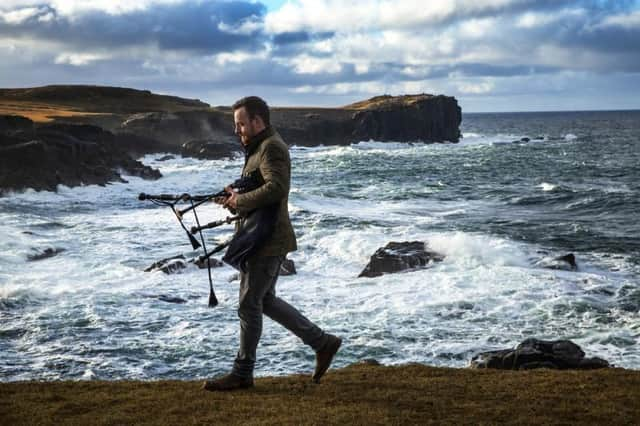Pipers band together to lament programme cuts


More than 6000 signatories have backed a petition launched by leading lights in the piping world in support of the regular piping programme, Pipeline, and also the Radio nan Gaidheal programme, Crunluath.
BBC Radio Scotland are also planning to axe jazz and classical music “niche” programmes. The piping petition says it is “important to demonstrate the global strength of feeling and audience sentiment” for retention of a full piping service, including outside broadcasts. It states: “Outside broadcasts are critical to recording the cultural heritage of the piping community because they are the only public record of our national musical traditions”.
Advertisement
Hide AdAdvertisement
Hide AdLewis piper and composer James Mackenzie, a former member of Breabach and Silver Medallist in piobaireachd at the Northern Meeting, told the Gazette: “Listening to these programmes whilst of school age provided me with a well rounded education on the wider piping scene across Scotland and the globe. These programmes gave me a great deal to aspire to.
“I heard grade 1 Pipe Bands competing at the highest level at the World Pipe Band Championships. I heard the world's greatest solo pipers competing at the Northern Meeting and a wide range of piping from the folk scene and pipes played alongside other instruments.
“All of this was vital in my formative years as a young aspiring piper growing up in Lewis. I heard about the RSAMD (now Royal Conservatoire of Scotland) and the Piping Degree course via these programmes and went on to study in Glasgow for a degree in traditional music specialising in piping”
He recalled: “Whilst in Glasgow, I was invited to record sessions for the Pipeline programme on a few occasions. These were paid opportunities but more importantly a chance to be heard by thousands around the world.”
Advertisement
Hide AdAdvertisement
Hide AdJames said: “it would be senseless to axe these cultural gems."
Noting that piping has been part of the BBC’s output in Scotland almost since its inception in 1923, the petition describes Scotland as “odd in that it has no established national archive of traditional music, and for decades, the BBC has acted as the national sound archive by proxy (notwithstanding Tobar an Dualchais etc.).
“We have been happy to have decisions on cultural heritage and musical representation made by commissioning editors and senior management at the BBC. If that tacit settlement is going to change radically then it will have consequences for the remit and funding of the BBC in Scotland… How can the BBC defend its public service remit if it doesn't make and broadcast specialist music programming in the non-commercial arena?
“Pipeline extends both the heritage and culture of Scotland around the world, well beyond the established Scottish diaspora in the US, Canada, New Zealand, Australia to many newer piping communities and pipe bands stretching from Peshawar to Poland”
https://www.change.org/p/why-we-must-retain-a-full-service-pipeline-programme-on-bbc-radio-scotland